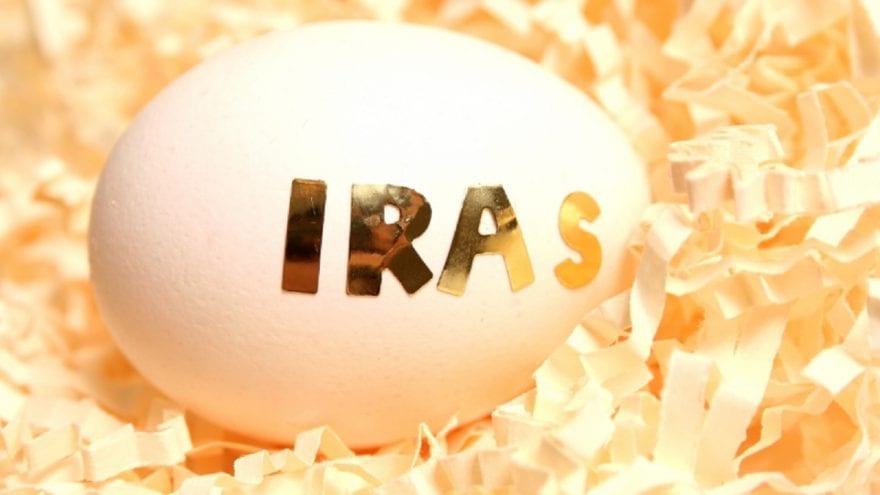IRAs: A Quick Reference Guide Q & A

After introducing some basic information about Individual Retirement Accounts (IRA) in my previous article – IRAs-quick-reference-guide/">IRAs: A Quick Reference Guide – here are examples of some questions that I encountered dealing with real customers and my answers. These responses should address and answer specific investor concerns and relate to real-word cases better than a written article discussing IRAs in general terms.
Q. I contribute to my employer’s retirement plan. Can I also contribute to my own IRA?
A. Yes. Your contribution to your employer’s plan has no bearing on your ability to contribute to your own or your spouse’s IRA. However, it may affect your ability to deduct contributions you might wish to make to your Traditional IRA (TIRA).
Q. My bank advertises that they will set up an IRA and transfer my 401(k) balance to it for free. Do IRA custodians usually charge for this service?
A. I have never seen or heard of an IRA custodian charging to set up an IRA or rollover other retirement plan dollars into an IRA. Custodians generally prefer to have more money under their management and hope that investors will use at least a portion of those funds to purchase investment products offered by the custodian. I think the “Free” advertisement is mostly there for marketing reasons.
Q. I’m 63 and retired, but I worked just a few days as a substitute teacher last year and my W2 shows $1,000 in box 1. I would like to contribute this to my TIRA and deduct the contribution on my taxes. But I contributed this money directly to the American Red Cross and am taking a charitable deduction on my tax return for this $1,000 contribution. Does this mean that I can not deduct these earnings as a contribution to my TIRA?
A. You may make a deductible contribution to your TIRA of the $1,000 shown in box 1 of your W2, assuming you do not also show an amount in box 11 of the W2 and that you have not yet reached the year you are 70.5. The IRS does not trace the actual dollars you earned to your TIRA. The only requirement the IRS levies on your TIRA contribution is that the IRA owner or their spouse must have earned income from services provided that at least equals the amount of the IRA contribution for that year. For those employed by others, this amount must show up on their form W2, box 1, as yours has. The actual dollars you send to your IRA custodian to put into your TIRA can come from any source.
Q. We have a 14-year-old daughter and would like to make an IRA contribution for her. Can we legally do this?
A. Yes, if your daughter has earned income that is at least equal to the amount of the contribution. This could come from babysitting, work at a youth camp or anywhere she might work and receive compensation for her services. An infant used as a model for TV commercials could have an Custodial or Guardian IRA set up for them with any IRA custodian. Similarly, a minor who works in the family business, and receives a reasonable compensation for actual work performed, would also be eligible for IRA contributions.
However, it gets a bit tricky if your daughter does not have such employment outside of the family. The IRS does not provide much guidance on what constitutes earned income for a minor paid by their parents or other family members where the pay is not from a bona fide business. Additionally, the IRS does not address allowances for chores or reward payments for doing something well. Some tax professionals take a conservative approach and do not consider this compensation income. Conversely, other tax professionals have a more relaxed approach and refer to these payments as a form of compensation for service. Their argument is that this is a great tool of education for the child and a good way to begin the savings process. Therefore, this is a broad benefit to society.
Because there are no specific rules, you must rely on your conscience to decide how conservatively or aggressively you will interpret this type of compensation. However, you must keep records of these compensation payments. If the IRS audits the contribution to the minor’s IRA, you must be prepared to show through your records of payment to the child that this was for actual work performed.
Q. My wife and I have won our state’s lottery drawing and will receive over $2 million in winnings this year. Our regular income from our jobs is currently about $72,000 and we both contribute to our 401(k)s. We have already contributed this year to our TIRAs. Can we leave these contributions in the TIRAs or must we withdraw them?
A. You may leave them as they are. There is no Adjusted Gross Income (AGI) limit to contributing to your TIRAs. However, because you participate with your employer’s retirement plan, your AGI will be much too high to deduct the TIRA contributions or to be able to contribute to your Roth IRA (RIRA). If you elect to discontinue working after this year and have no earned income, you will not be able to contribute to your IRAs.
Q. I am single, I have been laid-off and I was unable to get a job for the entire last year. I did some freelance work and picked up some extra cash during the year. Can I contribute this to my IRA?
A. Yes, but you must declare the money earned freelancing as income on your tax return. Please note that just because you declare it as income does not necessarily mean you will owe tax on that income. Whether you owe any taxes on that income will depend on your total income from all sources and how much in deductions you have for that year.




